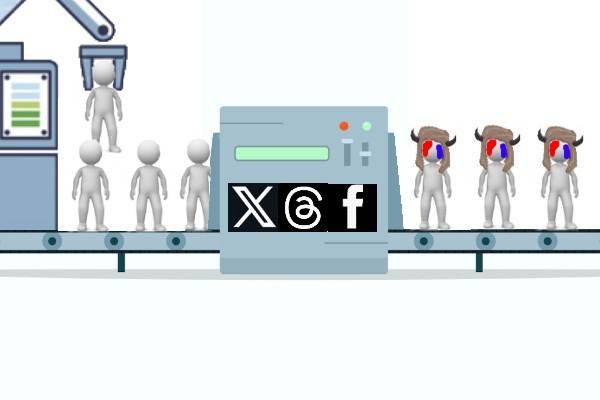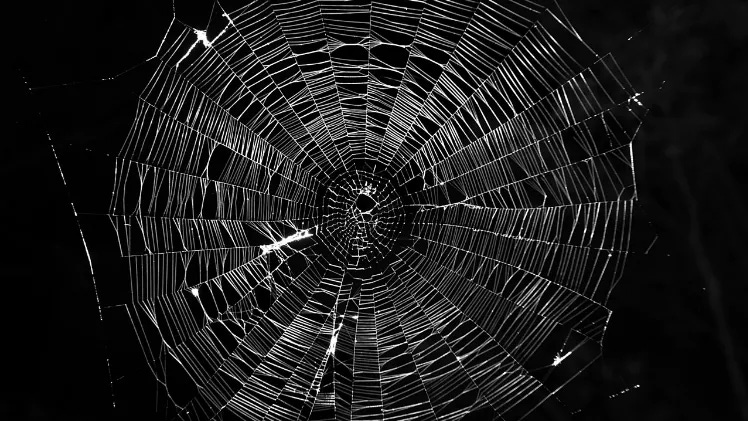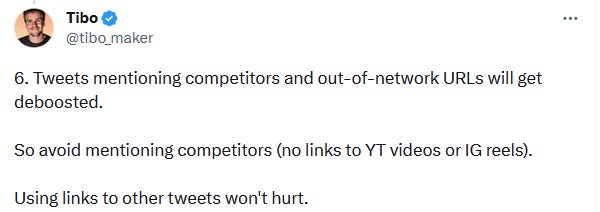How Social Media Platforms Become Disinformation Factories
Now it's even worse--they're being paid to spread it
Hey have you noticed that some really crazy shit is happening with QAnon, the pro Trump conspiracy, uh, community?
The group that started off with the claim that Hillary Clinton was eating children in the basement of a pizza shop and then somehow managed to get crazier from there has spent the last half decade growing in terrifying influence, and it’s probably a mistake to write it off as much as we have been, because, man, those guys have been cooking. The latest news is they believe JFK is still alive and their leader and key prophet is a 13 year old girl who goes by the name “Tiny Teflon.”
While we watch in awe as a former president racks up an astonishing hat trick of felony indictments, these people are seeping into positions of power. But how does the mind-blowing amount of misinformation required to form a group this large and this dense with crazy even manage to exist in this modern world, with the power to fact check at all of our fingertips like never before?
It likely has something to do with the way we run our social media.
It’s long been known that social media plays a role in the establishment and dissemination of conspiracy theories and disinformation, although contrary to what you might think, it does not create these untruths. Conspiracy theories and propaganda campaigns have existed forever. But social media has a unique way of making them worse if great care isn’t taken. And negligence by these platforms in reining in the worst of human nature can be devastating.
Like hey, did you know that Facebook played a part in facilitating a genocide? It’s something that for some reason isn’t very well known about the platform that puts things in an awkward perspective whenever you complain that it killed Gawker News or whatever. But class action lawsuits launched by the victims of a 2017 genocide in Myanmar have ruled that algorithms on the social media site that boosted and fuelled certain conspiracy theories and propaganda campaigns played a key role in driving the tragedy.
To find out why, we need to crack open the skulls of some shitty people (Figuratively!! Not a threat!!) and see what makes them tick.
Earlier this month, the archipelago state of Hawaii met with the tragedy of a generation. A series of wildfires ravaged the islands, leaving scores of people, potentially over a hundred, dead, with many unaccounted for, trapped as they were on Maui as it blazed. Entire towns are completely gone. And while this might seem like a good opportunity to reflect on the escalating horrors of climate change, many over on Elon Musk’s Twitter*, quickly becoming the worst place on the internet, have different ideas.
*Please note that for the remainder of this and very likely any future articles I will be referring to this website as Twitter. I am incapable of calling it “X,” I don’t have enough cringe to budget for that.
See, most cognitively functional humans would agree that, considering the cause of the fire, the most likely explanation is that, well, something caught fire. On Twitter, however, many feel that a still more likely explanation is, in fact, space lasers. Fired at Hawaii by, it is heavily implied, the Jews. At least, that is the explanation favoured by professional Elon Musk suckhole and all-round world champion cringe fuckwit Matt Wallace.
If you don’t know who Matt Wallace is, then I sincerely apologise for being responsible for that no longer being the case. All that you probably need to know is that his Twitter header image is this:
…and he’s not the golfer of the same name, who is notable for, unlike the crypto guy, having achieved something in his entire life.
What Matt Wallace does for a living instead of working or having human worth is he makes up bullshit conspiracies and other lies that he can put on the internet and generate attention, which he can then monetize via crypto scams or whatever.
That’s bad enough, or so you’d think, but in the way that only he can, Elon Musk managed to make it much worse—now he pays Matt to do this, directly.
It’s all in Twitter’s new creator monetization scheme, which gives a percentage of the site’s income to its content creators. Put aside the fact that Twitter doesn’t pay its rent, doesn’t pay its fines, doesn’t pay its contractors, and doesn’t play its employees. In the face of dozens or hundreds of lawsuits for which Musk cries poverty, these “creator payments” do bafflingly appear to be going ahead.
As a social media model, this makes a lot of sense—it is, after all, the users of a site like this who are both its customers and its product. YouTube have been doing the same thing for years, as have TikTok. Sharing the profits is an incentive for people to continue generating high quality content, which, in turn, attracts advertisers.
The problem for Twitter, however, is that what they consider “content” refers to anything. It’s not just video or art or, you know, actual thoughtful content, but any kind of tweet whatsoever, as long as it’s posted by a paying blue-checked loser I mean user.
Contrary to this, most platforms that engage in revenue sharing have tight guidelines on what they consider to be monetizable “content.” To be sure, the frequent complaint is that they’re too strict—say the wrong word or even allude to the wrong topic on YouTube and see your monetization option fly off into the distance and get sucked into a jet engine, exploding into dollar bill confetti. Of all the creators I have known who try to make a living through YouTube, for most of them the bulk of their income actually comes through Patreon.
Musk’s Twitter hustle is different. He promises a much more lenient system. Filtered through his empathy-absent tech-libertarian brain, Musk doesn’t even believe content can be harmful. His strict sticks-and-stones absolutist take on freedom of speech means he believes only active violence is harm. (Even this can’t be said to be totally accurate, as his paranoid solipsism makes exceptions for perceived threats to himself or his immediate family).
Now, two things are equally true: It is good for people to be given a share of the value that they create for the rich assholes in the owner-class. At the same time, few things have been responsible for as much misery and evil in the world as the phrase “monetary incentive.”
There are good reasons why platforms like YouTube and Facebook discourage or disallow material like Covid disinformation, election disinformation, threats, or harmful conspiracy theories. For one thing, they make platforms extremely unappealing to advertisers, as Musk has been discovering to his immense frustration. Still stewing in puzzlement about why he can’t simply make everyone give him money, he’s attempted a number of workaround fixes to make advertisers comfortable sharing screen space with Hitler, such as a scheme that enables brands to opt-out of having their ads placed on Nazi content.
But there’s also an element of social responsibility that platforms need to at least appear to have if they don’t want to get hauled into court like Facebook did for being a conduit for the promotion of disinformation and hate.
You might be thinking, like Musk does, that there’s no social harm whatsoever in letting people say what they want, or at least that there’s much greater harm in preventing them from doing so. First amendment and liberty and democratic values and all that. But here’s the problem: Internet social media, particularly that which is owned and operated privately as they all currently are, is not a town square no matter how often they call it that or try to make it one. What it is, is what’s known as a walled garden.
For example, what has been long suspected and this week confirmed officially is that you’re no longer allowed to post links on Twitter. Or at least you can in most cases but the post will get squashed by the algorithm. This follows a long trial and error campaign that Musk has undergone nearly from day one to prevent people from linking to things off site.
This isn’t a business decision that’s unique to Twitter. In one of the rare examples of Twitter stealing ideas from Zuckerberg rather than the other way around, Facebook famously did this first. It was one of the key factors in the digital media collapse that occurred around the mid 2010s and led to the loss of a huge number of media outlets and writing jobs, including mine and many of my colleagues—when Facebook, which had established itself as essentially the gateway to the internet, put up its walls it killed organic reach. And since it had already earlier, in turn, killed RSS feeds and other methods people used to keep tabs on the internet, nobody visited websites or consumed information outside of Facebook anymore.
This is what Facebook intended, and what Twitter wants for itself. Originally, Facebook did sort of act like a town square, but a town square doesn’t make any money. The non-allegorical town square doesn’t need to, because it’s just a physical location, it’s concrete, it just sits there. In the middle of town. Being square.
Social media can’t be a town square because it costs money to run, so what Facebook transformed into was a shopping mall. It’s still a place where people gather and talk, it still serves as a portal to other destinations, but the other destinations have to pay rent. If you’re posting a link to Facebook you need to open your wallet.
What Musk wants for Twitter is a step further than a shopping mall, he wants it to be a Walmart. A monopoly. Other retailers don’t even get to exist. All the information, the entertainment, the news, even the banking, will be on Twitter. It’s the final destination of capitalism—all the money in the world ultimately flows to him.
Without advertisers, Twitter needs to get its own users to cough up money. It does this in various ways—unpaying accounts have been progressively muted to the point of what is now essentially a shadowban—but nothing motivates like profit. Musk needed to give people reason to believe that their monthly subscription was an investment, and they were going to ultimately get more money back than they put in.
If this sounds like a pyramid scheme, you’re not far wrong. Musk obviously needs to keep the vast majority of the money that is paid in by subscribers. What he pays back out has to be distributed to a much, much smaller group of users. To that end, to be eligible for Twitter income you need to attract vast, vast, vast amounts of traffic to your tweets. You have to be an influencer or a celebrity. In most cases, you are already somebody who is very rich.
But when someone who already makes seven figures from their Daily Wire show gets on twitter and flaunts the $7,000 they earned from ten million tweet impressions, it really drives people to open those wallets.
Now, start putting all the pieces together.
Subscribing to Twitter buys you reach. The algorithm prioritizes your opinions over others, who are silenced and relegated to what is essentially a read-only platform.
The people who pay for these subscriptions are and will always be predominantly those who agree with Elon Musk’s strong political opinions. Liberals can if they want, just the same as liberals are allowed on Truth Social at the expense of financially assisting Donald Trump. It is unlikely.
To earn back from the system, subscribed users are strongly incentivised to post outrageous things. This means scare content. Fear porn. The angrier your blood, the better. Conspiracies. Racial violence. Terror. Fudged and abused statistics. Self help charlatans.
And in the walled garden, there is no way to refute disinformation with linked evidence. I don’t want to hear about the “Community notes” feature that is supposed to replace fact-checking via linked evidence—through which something like 1% of erroneous claims are churned through an invisible bureaucratic process that might address a claim a week after it’s too late or just not at all.
What you get is an endless vile cavalcade of Elon Musk’s precious Content. And everything is Content.
Last month the user Dom Lucre, who tweets thousands of times a day, was suspended from Twitter for posting what was described as Child Sexual Abuse Material, which, though nobody is willing to describe it, sounds like the kind of thing that QAnons usually shoot up pizza places over. But Musk personally intervened to restore Lucre’s account despite his purported hard line stance on such material. Why? It’s Content. As the company’s global affairs executive hilariously named Nick Pickles explained to an Australian parliamentary inquiry over the incident, the content was shared in outrage, so it didn’t really violate the rules. Instead, Twitter cut him a check.
Andrew Tate, currently awaiting trial on human slavery and sex trafficking charges, also hit the jackpot for his Content. Even death threats get to be Content now if they’re a paying customer.
When Elon Musk took over Twitter, he wanted to get rid of the celebrities, but all he did was replace them with sex offenders.
People have variously been predicting the slow death of Twitter, and speculated what might come after it. And although I miss what it used to be I hope it’s extinguished before something horrible happens again. Elon Musk won’t learn from Myanmar. I hope we do.

















